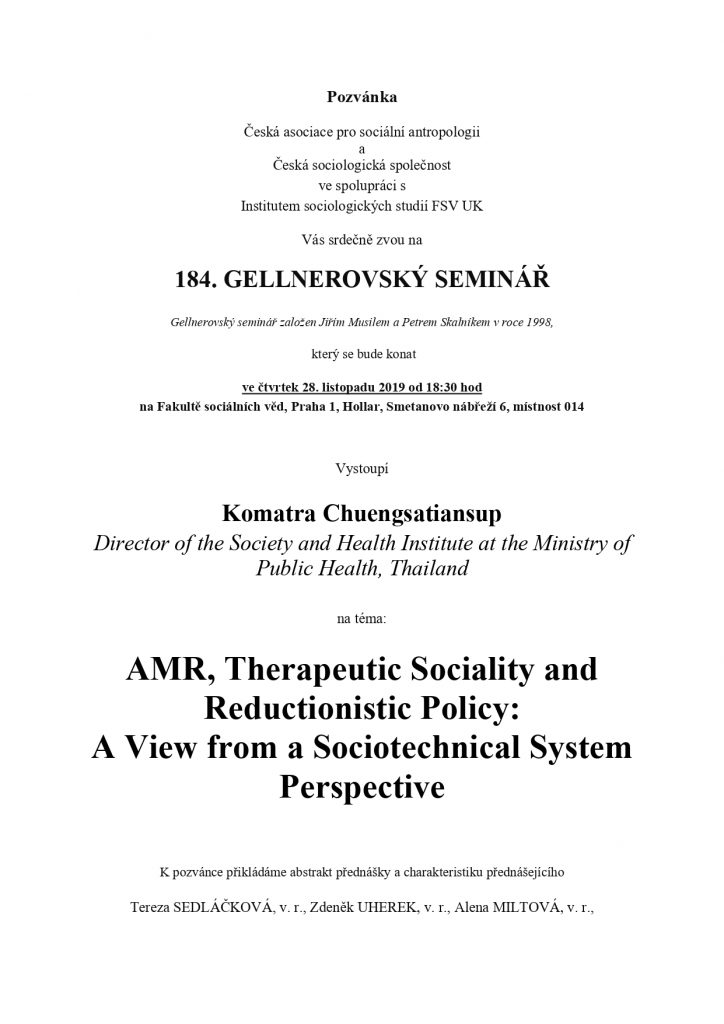
Abstract
Current approaches to antimicrobial resistance (AMR) suffer from a reductionistic worldview; complex multilevel-multi-dimensional interconnected issues are reduced either to a problem of personal behavior (e.g. ill-informed practices or non-compliance) or structural factors (such as legislation or drug regulation). By tracing how the concerns over “inappropriate drug use” evolved in global policy discourses, this paper argues for a shift to a more nuanced “sociotechnical system” understanding of AMR situation. Viewed from such a system perspective, complex AMR problems can be better understood as attributable to a sociotechnical system of “therapeutic sociality,” in which various aspects of human social life has been medicalized and pharmaceuticalized. A system view is helpful to identify a set of interconnected problems inconceivable through reductionistic analysis which seeks to break down problems into their constitutive parts. Five key issues are proposed to draw attention away from seeking and blaming the bad parts to seeing more effective leverages to reshape system dynamics. These are (1) Human-centric bias in policy and technological activities; (2) Drug-oriented healthcare in which antibiotics ritualistically replace and define “care”; (3) Vulnerability through increased intensification of productivity; (4) Cognitive dissonance and the decremental disintegration of regulatory system; and (5) Geographic misconception of geo-social topological function. Viewing AMR problems through a fresh perspective of a sociotechnical system could bring about new possibilities on how the problems of AMR are framed and engaged.
Biography
Komatra Chuengsatiansup is Director of the Society and Health Institute (SHI) at the Ministry of Public Health, Thailand. He received his MD from Chulalongkorn University and his PhD in social anthropology from Harvard University in 1998. His work at the Society and Health Institute includes research programs on the history of medicine and public health; the philosophy of science and medicine; anthropology and community health; civil society and health systems reform; and indigenous healing systems in Thailand.